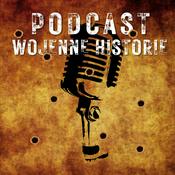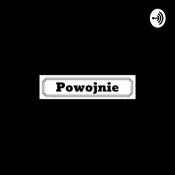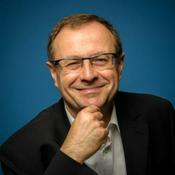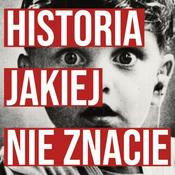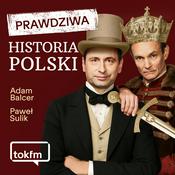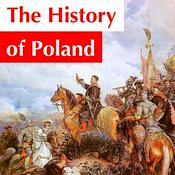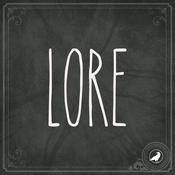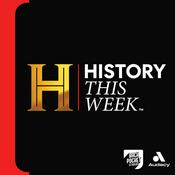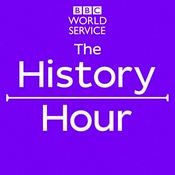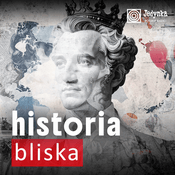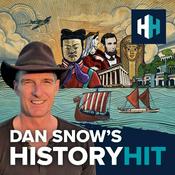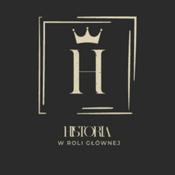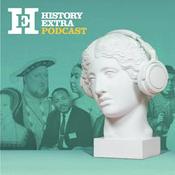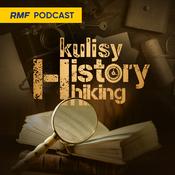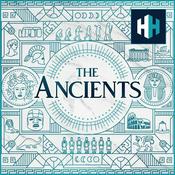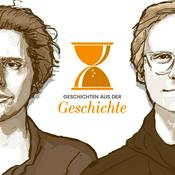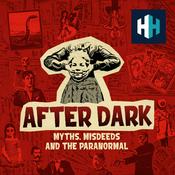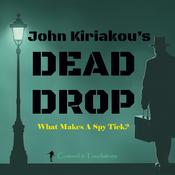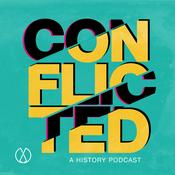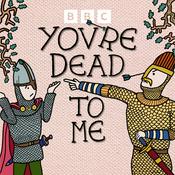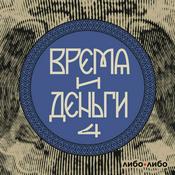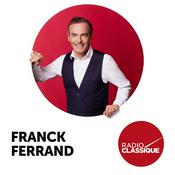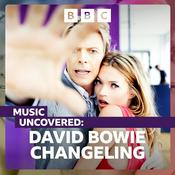393 odcinków
- After a childhood in care in Surrey, Alex Wheatle was moved to a hostel in Brixton aged fourteen. Later he was involved in the riots and given a prison sentence, events which were covered in one of the Small Axe anthology of films by Steve McQueen. But it is Wheatle's writing career that has prompted Ashley John Baptiste to pick him for Great Lives - and his success was rapid and inspiring before his early death in 2025. Joining Ashley in this celebration of the life and career of the Brixton Bard is Lemn Sissay and Vanessa Walters, author of Rude Girls and The Nigerwife.
Includes archive of Alex Wheatle MBE at the Hay Festival in 2024 and on Graham Norton's radio show.
The producer for BBC Studios in Bristol is Miles Warde - "It was brilliant to read some of the old techniques the Spitfire test pilots were using, and in some respects test pilot flying isn't that different today, but we don't have to do everything by notebook and pencil and stopwatch." Tim Peake
Jeffrey Quill was born in 1913, and flew the Spitfire prototype in 1936. Tim Peake was born in 1972 and was launched into space exactly ten years ago, on December 15 2015. Joining him in studio is the aviation historian Dr Victoria Taylor. The story of Jeffrey Quill's inspiring life includes archive of Raymond Baxter and Quill himself.
This is series 67 of Great Lives and future programmes focus on Joan Rivers, Marcus Agrippa, and Johnny Green, road manager with The Clash.
Presented by Matthew Parris and produced in Bristol by Miles Warde - "Postgate's work is deep inside me and I think that's true for so many of my generation...His work represents nothing less than a touchstone for our national imagination and in that sense it's profoundly important"
Andrew Davenport, writer, composer, and creator of Teletubbies and In the Night Garden, nominates Oliver Postgate, who, along with his Smallfilms business partner, the artist Peter Firmin, invented the children's television shows Ivor the Engine, The Clangers and, perhaps most loved of all, Bagpuss.
Postgate was a late bloomer. Following Dartington school (which he hated) a stint in jail and working the land, several odd jobs and even odder inventions, he eventually discovered a love of stop-motion animation and created some of the most enduring worlds and best-loved characters in television, all from a cowshed in Kent.
Including clips of his programmes, contributions from singer and musician Sandra Kerr. and archive from Postgate's 2007 Desert Island Discs interview.
With cultural historian Matthew Sweet. Produced by Ellie Richold. Presented by Matthew Parris. - Lucy Jones, author of Matrescence, chooses the writer Sylvia Plath.
Sylvia Plath was a precocious, prize-winning child,. Her mother had high expectations for her. Her father had died when she was 8 (but could have been saved if only he'd gone to see a doctor).
When she was well, Plath was energetic, fun, bright, attractive, funny and incredibly smart.
Her first depressive episode at the age of 20, was 'treated' with botched electric shock therapy. She was awake throughout the ordeal, which left her terrified and traumatised.
Lucy Jones believes that Plath has an unfair reputation as a depressing writer, because of the shadow that her suicide casts backwards over her life. But Jones finds Plath's poetry incredibly alive, brave, comforting and inspiring. "I don't think I would have been able to write Matrescence without Plath's work"
Both Lucy Jones and Plath's biographer, Heather Clark, believe that at the end of her life, recently separated and struggling through a particularly bad winter with two very small children, she may have been suffering from post-natal depression.
With archive recordings of Sylvia Plath reading her poems Daddy and Mushrooms, as well as being interviewed with Ted Hughes.
Produced in Bristol by Ellie Richold and presented by Matthew Parris - "One of the things that she claimed was that her mother had been impregnated by the sun god Amon-Ra."
Elizabeth Day's interest in the female pharaoh Hatshepsut was sparked by a trip to Egypt less than a year ago. What intrigued her was how this woman survived and thrived as ruler in a traditionally male role. Joining her in discussion is Professor Joyce Tyldesley, recent winner of archaeologist of the year. She says that Hatshepsut changed her life when she wrote her biography. Matthew Parris presents.
Elizabeth Day is the author of six novels and host of How to Fail.
The producer for BBC Studios in Bristol is Miles Warde
Więcej Historia podcastów
Trendy w podcaście Historia
O Great Lives
Biographical series in which guests choose someone who has inspired their lives.
Strona internetowa podcastuSłuchaj Great Lives, Historia BEZ KITU i wielu innych podcastów z całego świata dzięki aplikacji radio.pl
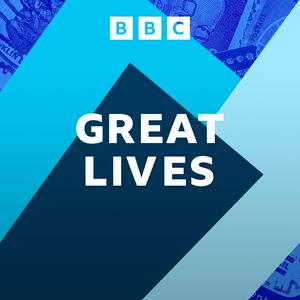
Uzyskaj bezpłatną aplikację radio.pl
- Stacje i podcasty do zakładek
- Strumieniuj przez Wi-Fi lub Bluetooth
- Obsługuje Carplay & Android Auto
- Jeszcze więcej funkcjonalności
Uzyskaj bezpłatną aplikację radio.pl
- Stacje i podcasty do zakładek
- Strumieniuj przez Wi-Fi lub Bluetooth
- Obsługuje Carplay & Android Auto
- Jeszcze więcej funkcjonalności


Great Lives
Zeskanuj kod,
pobierz aplikację,
zacznij słuchać.
pobierz aplikację,
zacznij słuchać.


